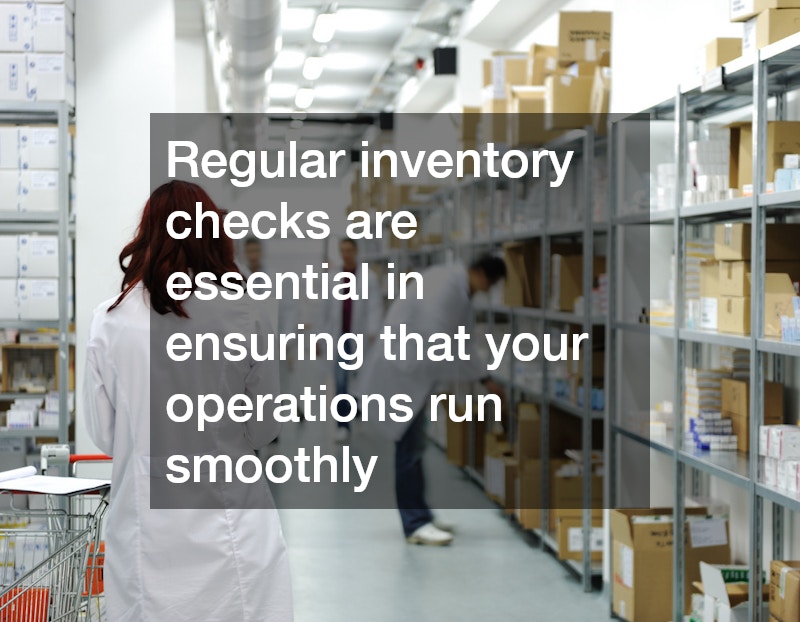
Food manufacturing companies rely on effective inventory management to maintain efficiency in the manufacturing process and meet customer demands. An efficient inventory management system helps to improve the automation of the food manufacturing process and streamlines operations. So, if you are one of the many business owners struggling with similar challenges of how to keep track of stock inventory as you strive to optimize your production lines, you may need a well-implemented automation system. It can improve inventory management and facilitate accurate tracking inventory, allowing you to know precisely what you have on hand and what you need to reorder so you never run out of ingredients. This level of control minimizes waste and prevents unnecessary production interruptions.

Regular inventory checks are essential in ensuring that your operations run smoothly, but manually counting stock can be time-consuming and error-prone. Integrating automated systems can alleviate these issues by providing real-time insights, helping you respond swiftly to changing demands. Furthermore, developing a robust inventory management plan incorporating technology can fulfill your operational requirements while minimizing waste and maximizing profitability. In this article, we will explore practical strategies and tools to help you successfully automate your food manufacturing processes, enabling you to keep your inventory organized and efficient and ultimately thrive in a competitive market.

Keeping the food supply safe is important for all companies that produce any foods or beverages. It has been estimated that about 48 million people in the United States, that is one in six, becomes ill every year from foodborne diseases. Approximately three thousand people die from this. In addition to worrying about bacteria, companies need to make sure the food they produce is free of other contaminants. In efforts to make their products as safe as possible, most food manufacturers have turned to automation. In addition to using the right checkweighers and pre-made pouch filling machines, there are other things businesses can do in this area. FoodBev Media has compiled its list of what companies should do.
- Put a premium on integration and connectivity. Most of the time, in the world of food manufacturing and processing, all of the systems that are used are put on a central network and platform. The problem that comes up is that these systems may be housed on the same platform but that does not mean they are totally integrated and connected. They cite an example of a company that makes energy beverages that uses a data system that is manual. The data produced is helpful but because that system is not integrated with the other systems, that data is rendered useless. By connecting and integrating the data collection system with the manufacturing execution system, efficiency and accuracy can be increased.
- Integrate and connect all of your systems. Food and beverage manufacturers have complicated systems for packaging their products. There are different kinds of food packaging equipment along with various components. When these are not fully integrated, the entire system can be left open to a host of different problems. When everything is integrated properly, you can catch issues with the various pieces of equipment and the components before they shut down your entire line.
- Automate your weighing process. Using good checkweighers is one part of this but that is not the end all be all of the process. Getting your weights right when it comes to the products you ship to stores is one of the most important things you will expect your system to help you do. Even a small mistake in this area can do a lot to change the product you are shipping. You can even cause people who consume your product to become ill. Therefore having an automated system to weight and measure everything can make a huge difference in the outcome of your process.
- Recognize the importance of data collection. People do not always see the importance in data collection when it comes to producing food and beverages. This is one area where investing in the right checkweighers can make a huge difference. When you have the most up to date measuring and weighing equipment and checkweighers that have been integrated into a software system, you can get the data you need to move your business forward. You need to have the right tools to take in and examine the data you collect to make the most of it.
- Get the right software. It is clear that having the right hardware, tools, and other equipment can make a huge difference in any efforts to automate a food and beverage processing system but having the right software can make just as much of a difference. Using the right software packages and platforms to connect all of the processes you are using for your food and beverage production can help you integrate everything and let you know when there are problems along your line before they become too big to manage.
- Keep your eye on your goals. Going into any process to automate your system without taking the time to outline your business goals is not a total waste of time but you will have a better experience if you take the time to really evaluate your goals and where you want to go with your company. It always makes sense that when you are going to make major changes to the way your products are processed that you take the time to see how that fits in with your overall business plan.
